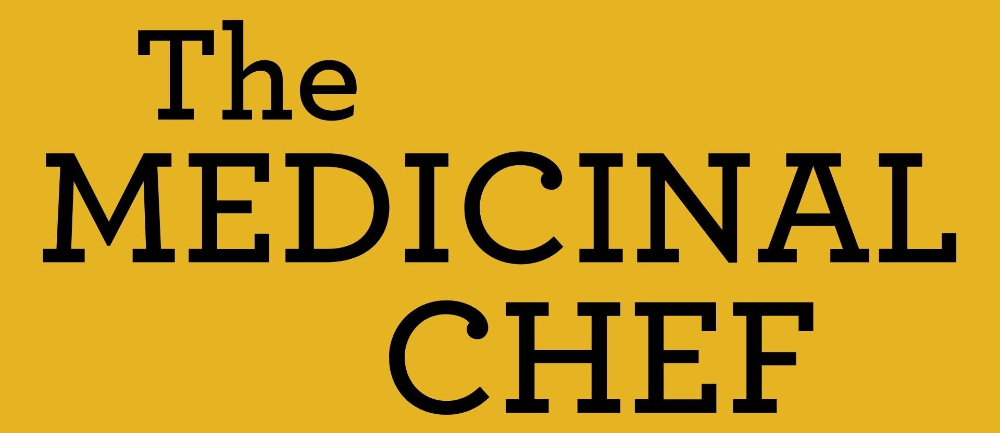The 4 Big Weight Loss Myths In Middle Age
Apr 18, 2024
Maintaining a healthy weight can sometimes seem more challenging at different stages of life. Being well and truly in the middle age club now, I realise that there are things that I had to change and that I cannot get away with that I did even in my 30’s. At this stage of life many people start to find that it is a struggle to keep at a healthy weight, and sadly there are many common myths that just throw people further off track.
This doesn't NEED to be an uphill slog, but before you take any positive steps forward, I want you to leave these common myths behind once and for all.
Myth 1: Weight Gain Is Inevitable With Age
We have been told time and time again that som degree of middle age spread is just a part of the ageing process. That we shouldn’t be surprised. Whilst yes there are some elements of metabolic decline with age, due to issues like hormonal decline and reduction in muscle mass, but a never ending weight gain is not a given.
A comprehensive meta-analysis conducted by Hall et al. (2012) examined the relationship between age and weight gain, revealing that while weight tends to increase over time, the rate of gain is not uniform across all individuals. Lifestyle factors, such as diet and physical activity, play a significant role in determining weight trajectory. Furthermore, a longitudinal study by Dengo et al. (2013) demonstrated that middle-aged adults who engage in regular physical activity and adhere to a balanced diet can effectively mitigate age-related weight gain.
If we know these issues are the key drivers, we can design a lifestyle to counteract this. More activity of all types - I personally have favoured walking as it is low intensity and the calorie burn is amazing. More on this in a moment.
Couple this with a nutrient dense whole foods diet that centres around protein, fibre, vegetables and healthy fats, and there will be nothing inevitable about what happens to our waistlines.
Myth 2: Crash Diets Are Effective For Rapid Weight Loss
Now, I hope you know how I feel about this. But, just in case you don’t. THEY ARE A BAD IDEA!! It is of course very tempting to do something drastic to get a drastic result, and sure if you have a wedding or a holiday upcoming, then I can understand the mindset, but nothing good ever comes from a quick fix. Certainly not for long term weight management.
A systematic review conducted by Johnston et al. (2014) compared the efficacy of various popular diets for weight loss and found that while low-carbohydrate and low-fat diets often produce significant initial weight loss, adherence tends to wane over time, leading to weight regain. Moreover, crash diets can have detrimental effects on metabolism and overall health, including nutrient deficiencies, muscle loss, and metabolic slowdown.
So, what IS the key. Well, the one thing that I consistently teach is - long term dietary pattern adjustments. More on that later.
Myth 3: Cardio Is The Best Exercise For Weight Loss
So, I touched on exercise a moment ago, saying I prefer walking as my cardio of choice. I absolutely cannot abide the high intensity cardio. There is not a chance you will ever get me doing a burpee or high intensity sprints. A nice long walk with an audio book or podcast to keep me entertained is much more my style.
The good news is, it seems that all of that intense cardio that we have been sold for decades may not be that great if we are thinking about weight management long term.
Resistance training (weights, push ups etc) is often overlooked in favour of cardio but offers numerous benefits for weight loss and overall health. A randomised controlled trial by Villareal et al. (2017) demonstrated that combining aerobic and resistance training led to the greatest reduction in fat mass and preservation of lean muscle mass among older adults compared to either exercise modality alone.
Furthermore, resistance training helps counteract age-related muscle loss (sarcopenia) and boosts metabolism by increasing resting metabolic rate (Hunter et al., 2018). Therefore, middle-aged individuals should incorporate a balanced exercise routine that includes both cardiovascular and resistance training for optimal weight management and overall fitness.
Myth 4: Eating Less Is The Key To Weight Loss
You all know how I feel about the calorie model by now don’t you? DON’T YOU? It is broken. Flawed. Inaccurate. Misleading. Nonsensical. You get the picture. But every time you hear any kind of advice about losing weight, it is always about ‘eat less calories than you burn” or “eat less move more”. It permeates this whole discussion.
However, research indicates that the quality of calories consumed is more important than quantity when it comes to weight management. A study published in JAMA (Mozaffarian et al., 2011) compared the effects of different dietary patterns on weight loss and found that a high-quality diet rich in whole foods, such as fruits, vegetables, lean proteins, and healthy fats, was associated with greater weight loss and maintenance compared to a low-quality diet high in processed foods and added sugars. Even when calorie matched. Almost as if it is the biological response to food and the influence on the metabolic environment that is more important - go figure!
Also extreme calorie restriction can backfire by slowing metabolism and triggering compensatory mechanisms that promote weight regain (Sumithran & Proietto, 2013). Instead of focusing solely on cutting calories, middle-aged individuals should prioritise nutrient-dense foods that provide satiety and support overall health while paying attention to portion sizes and mindful eating practices.
Working at the root of metabolic health remains top priority
Take a look around you when it comes to our age group. How many people do you know in mid life that do not have at least one sign of metabolic disease or dysfunction? Belly fat, extra weight that won’t respond to exercise, high blood pressure, high cholesterol, insulin resistance and/or type 2 diabetes. It is RIFE and is the biggest burden on our health care services.
I have combined all of my clinical experience, using protocols that I have used with hundreds of patients and created a programme called ‘The Metabolic Fix’. A complete nutritional programme to help you lose weight and maintain it for life, fine tune your metabolic health, and reduce your long term disease risk with simple easy to apply steps that will make lasting change from day one!
You can learn more about this programme and get started with it - By Clicking Here
References
Hall, K. D., et al. (2012). Energy balance and its components: implications for body weight regulation. The American Journal of Clinical Nutrition, 95(4), 989-994.
Dengo, A. L., et al. (2013). Resistance training reduces systemic inflammation in postmenopausal women with type 2 diabetes. Journal of Applied Physiology, 114(3), 344-352.
Johnston, B. C., et al. (2014). Comparison of weight loss among named diet programs in overweight and obese adults: a meta-analysis. JAMA, 312(9), 923-933.
National Institute of Diabetes and Digestive and Kidney Diseases (NIDDK). (2020). Weight-loss and Nutrition Myths. Retrieved from https://www.niddk.nih.gov/health-information/weight-management/myths-nutrition-physical-activity
Villareal, D. T., et al. (2017). Aerobic or Resistance Exercise, or Both, in Dieting Obese Older Adults. New England Journal of Medicine, 376(20), 1943-1955.
Hunter, G. R., et al. (2018). Resistance training conserves fat-free mass and resting energy expenditure following weight loss. Obesity, 26(8), 1410-1416.
Mozaffarian, D., et al. (2011). Changes in diet and lifestyle and long-term weight gain in women and men. New England Journal of Medicine, 364(25), 2392-2404.
Sumithran, P., & Proietto, J. (2013). The defence of body weight: a physiological basis for weight regain after weight loss. Clinical Science, 124(4), 231-241.




